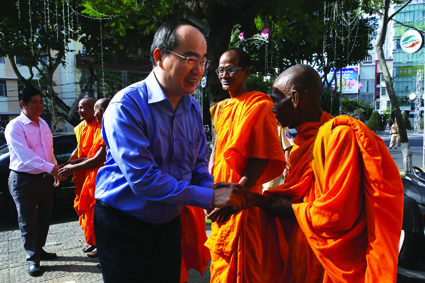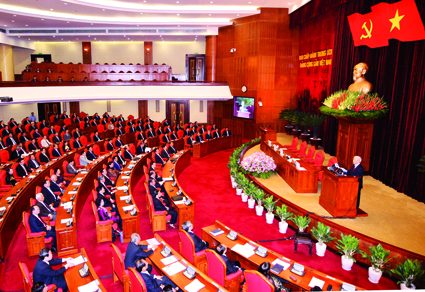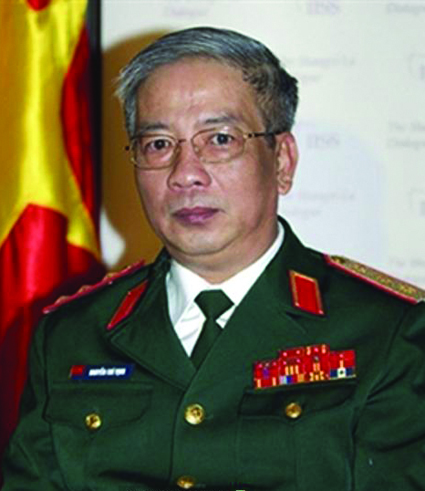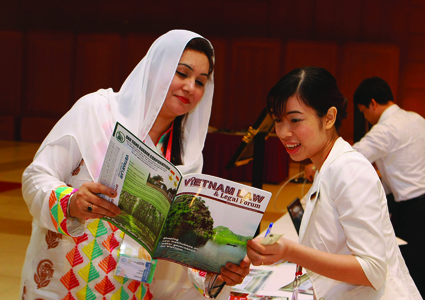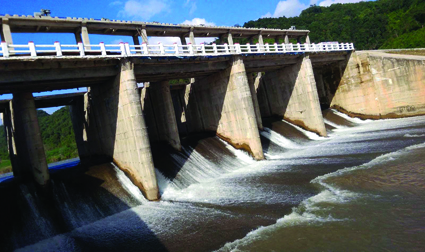As Vietnamese lawmakers are debating this month the draft of Vietnam’s first-ever law on referendum, Vietnam Law & Legal Forum talks with Professor-Doctor Le Minh Tam, Vice President-cum-Secretary General of the Vietnam Lawyers Association, about the pros and cons of this important legislation.
Referendum has been known in Vietnam since 1946 with the emergence of the country’s first Constitution. However, this is the first time we work out a law on this issue. Could you brief us about the drafting process of this law?
Referendum is a tool for the people to directly express their will and exercise their power over issues of national importance at a particular time. Referendum has been widely recognized as one of the values of direct democracy in modern society. Of 214 countries and territories around the world, 167 have passed laws or regulations on referendum.
Bearing in mind the significance and importance of referendum, in 2014 the Vietnam Lawyers Association (VLA) prepared and submitted to the National Assembly a project to build a law on referendum and then was assigned by the National Assembly to draft the law. This showed the National Assembly’s trust in VLA as it successfully drafted and had the Law on Commercial Arbitration passed by the National Assembly in 2012. We consider this work a great honor as well as a heavy duty of our association.
Following the assignment of the National Assembly, VLA promptly formed a drafting board and made a plan for drafting the law on referendum. The association then carried out a series of activities to serve the drafting such as holding meetings with national and international experts on referendum and referendum law and collecting public opinions nationwide on referendum. We carefully studied international experiences as well as Vietnam’s current laws and regulations relating to referendum, such as the Law on Election of Deputies to the National Assembly and People’s Councils and the Law on Organization of the National Assembly. We also sifted through domestic and foreign research papers on referendum law and translated into Vietnamese the referendum laws of 13 countries.
Thanks to these efforts, the draft law was completed in time. Before being tabled to the National Assembly for discussion at the ninth session, the draft law had been submitted to the National Assembly Standing Committee and concerned agencies for comment in accordance with the Law on Promulgation of Legal Documents.
The building of the law on referendum has so far attracted great public interest at home and abroad. Could you explain about the necessity and significance of this work, especially when Vietnam is overhauling its legal system in light of the 2013 Constitution?
The building and passage of the law on referendum is very necessary and important for several reasons.
Firstly, in many important documents the Party has advocated the expansion of forms of direct democracy and passage of a law on referendum. The Constitutions of 1946, 1980, 1992 and 2013 all have provisions on referendum. Particularly, the 2013 Constitution provides for referendum in Article 29; Clause 15, Article 70; Clause 13, Article 74; Clause 4, Article 120 and some other articles. The building of a law on referendum is aimed at promptly institutionalizing the Party’s line, concretizing the 2013 Constitution and completing the legal system.
Secondly, the building of a law on referendum reflects an objective and pressing demand of our country today, that is to put into place a legal framework for the people to have a proactive, positive and decisive say on the State’s activities. This demonstrates the Vietnamese tradition of respecting, placing confidence in, and relying on, the people.
Thirdly, referendum differs from public consultation, the form of collecting people’s opinions on policies and laws before promulgation which has become very popular in the country over the past years. Referendum is a form of direct democracy and a way for the people to directly decide on important issues of the nation. The emergence of the law on referendum will create a legal foundation for the people to exercise democracy, directly express their will and wield their power over important issues of the nation, thus meeting the goal of building a law-ruled socialist state of the people, by the people and for the people.
Finally, the law on referendum, once enacted, will enable the people to have deeper participation in deciding on important issues of the nation in the process of international integration.
What are principles of referendum established in the draft law? Of these principles, which display particular characteristics of Vietnam?
Principles of referendum are specified in Article 3 of the draft law.
The first principle is to uphold the people’s power, enhance the national great solidarity bloc and social consensus, and enable the people to directly express their will and decide on issues of national importance.
The second is to ensure equal, universal, direct and secret suffrage at referendums.
The third is that referendums must be conducted according to law-prescribed order and procedures in an objective, scientific, strict, public and transparent manner.
These principles must be adhered to throughout the referendum process. Of them, the first principle demonstrates many particular characteristics of Vietnam and has already been enshrined in the 2013 Constitution.
For the time being, there are still divergent opinions on some issues provided in the draft referendum law. Could you elaborate on these issues?
These are several debatable issues in the draft law presented to the ongoing session of the National Assembly.
The first issue concerns what sorts of matters should be taken to referendum. According to the 2013 Constitution, the competence to decide these issues rests with the National Assembly.
A majority of opinions hold that the draft law should provide general issues that can be proposed to the National Assembly for decision to hold a referendum on. Because these issues are important to the country, attempts to specify these issues in the draft law cannot list every issue.
However, some say that the draft law should clarify which issues may and may not be put to referendum.
Around the world, there are 65 countries where the laws do not specify which matters are to be taken to referendum but leave them to those who make referendum proposals as long as these proposals are lawful. Some countries only hold referendums on constitutional issues, while some others have laws clearly spelling out matters which must be put to referendum.
Our draft law provides issues to be put to referendum in a general manner. Article 6 of the draft law stipulates: “Issued which may be proposed to the National Assembly for decision to hold a referendum are constitutional issues and other important issues falling under the jurisdiction of the National Assembly.” This provision accords with the 2013 Constitution’s provision on the National Assembly’s competence to decide to hold referendums and suits our country’s current reality.
As to the scale of referendum, most opinions hold that referendums should be held only on a national scale. This is comfortable with the 2013 Constitution’s provision on the National Assembly’s competence to hold referendums. Since matters to be put to referendum must be those affecting the whole country, they need to be decided by the entire people. As for matters affecting just one locality or region, competent agencies should better hold public consultations before making decision.
Meanwhile, some opinions suggested that for matters of national importance which affect only a region, for example, nuclear power plant projects or socio-economic projects related to one or some provinces, referendums should be held within the affected region only.
Looking at the referendum laws of many countries, we see that some countries like Japan, South Korea and Switzerland, organize referendums on both national and local scales. In other countries, referendums are organized on other national or local scale. For instance, Latvia holds referendums at national level while in the US, referendums are organized at the state level only.
As for Vietnam, taking into account the provisions of the 2013 Constitution and the country’s practical situation, Article 7 of the draft law stipulates: “Referendums shall be organized on a national scale.”
Regarding the validity of referendum results, the draft law uses the formula of “double majority”, saying that “a referendum shall become valid if more than half of voters named on the list of voters cast their votes. The referendum option which is voted for by more than half of valid votes shall be made public for implementation.”
The above provisions of the draft law have been designed based on the principle that the result of a valid referendum is binding (Clause 1, Article 10).
Most opinions agree that these provisions should apply to all cases as stipulated in the Law on Election of Deputies to the National Assembly and People’s Councils.
However, some suggested that since the Constitution is a law of special importance, the draft law should additional stipulate that a constitutional referendum shall become valid only when more than two-thirds of voters named on the list of voters cast their votes and that the opinion which is voted for more than two-thirds of valid votes shall be made public for implementation.
This issues is addressed in different ways around the world. Switzerland’s legislation does not set any voter turnout threshold for a referendum to be valid. In countries like Bulgaria, Italia, Lithuania and Russia, a referendum is considered valid only when the voter turnout is at least half of the total voters nationwide. Meanwhile Azerbaijan requires a much lower rate, just 25 percent of the total number of voters having registered to cast votes in elections.-

